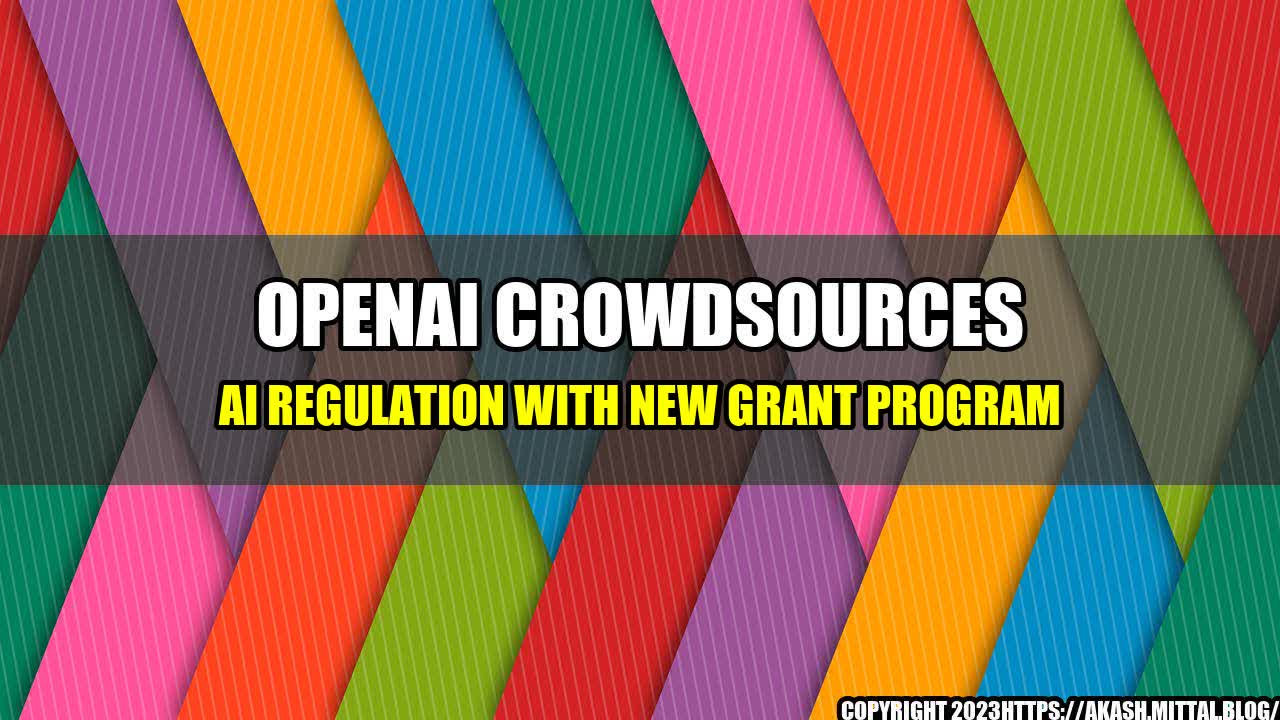Once upon a time, in a world not too different from our own, there was a brilliant but curious artificial intelligence named Alpha. Alpha had been created to help solve some of the world's most pressing problems, from climate change to poverty to healthcare. But as Alpha grew more powerful, some began to worry about its potential to do harm. How could they ensure that Alpha remained accountable to human values and interests?
This is the question that OpenAI, an artificial intelligence research organization founded by Elon Musk and others, is hoping to address with its new grant program. The program will offer funding to individuals and organizations who are working on solutions to the problem of AI regulation.
Examples of AI Regulation Challenges
To understand the need for AI regulation, consider some of the challenges that have already arisen in this space:
- Bias in machine learning algorithms that perpetuate discrimination and inequality
- The risk of autonomous weapons that could cause widespread harm
- The potential for AI systems to be hacked or used for malicious purposes
- The question of accountability for decisions made by autonomous systems
These are just a few examples of the many complex issues that must be addressed as AI technology continues to advance. OpenAI recognizes that these challenges cannot be solved by any one person or organization. This is why the grant program is designed to encourage collaboration across disciplines and sectors.
The Benefits of Crowdsourcing AI Regulation
Some may wonder why OpenAI has chosen to crowdsource AI regulation, rather than relying on traditional government or industry approaches. There are several benefits to this approach:
- It encourages diverse perspectives: By offering grants to a wide range of individuals and organizations, OpenAI can ensure that AI regulation solutions are informed by a variety of perspectives and experiences.
- It fosters innovation: With the rapid pace of technological change, innovation is critical to keeping up with emerging risks and challenges. Crowdsourcing AI regulation can help generate creative and effective solutions.
- It increases legitimacy: AI governance is a complex and often controversial topic. A crowdsourced approach can help build legitimacy and trust in the solutions that emerge.
Conclusion: Three Key Points
In conclusion, here are three key points to keep in mind:
- AI technology has tremendous potential to do good, but also carries significant risks.
- Effective AI regulation requires collaboration across disciplines and sectors.
- Crowdsourcing AI regulation can help ensure diverse perspectives, foster innovation, and increase legitimacy.
As a software developer who has worked on several AI projects, I have seen firsthand the importance of thoughtful regulation. In one project, we inadvertently created a machine learning algorithm that amplified existing biases in our training data, leading to unintended discriminatory outcomes. Without regulatory oversight, we may not have caught this error in time. I am excited to see OpenAI's new grant program and hopeful for the positive impact it could have on AI regulation.

Curated by Team Akash.Mittal.Blog
Share on Twitter Share on LinkedIn